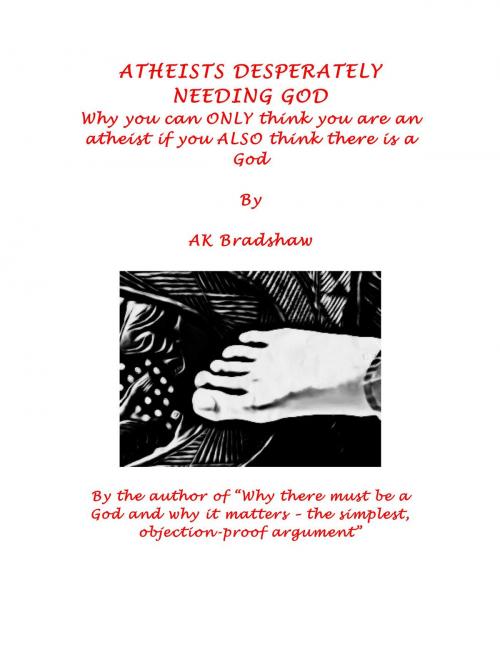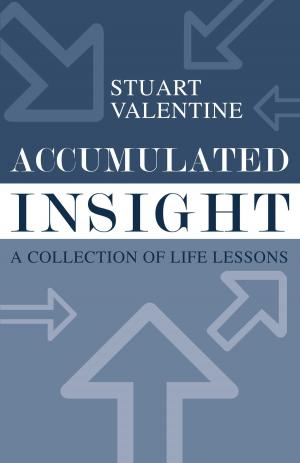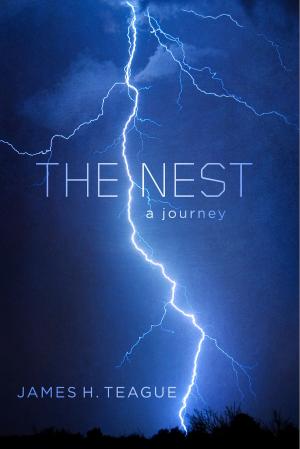Atheists Desperately Needing God
Why You Can Only Think You Are an Atheist If You Also Think There Is a God
Nonfiction, Religion & Spirituality, Philosophy, Religious| Author: | AK Bradshaw | ISBN: | 9781483565637 |
| Publisher: | BookBaby | Publication: | March 31, 2016 |
| Imprint: | BookBaby | Language: | English |
| Author: | AK Bradshaw |
| ISBN: | 9781483565637 |
| Publisher: | BookBaby |
| Publication: | March 31, 2016 |
| Imprint: | BookBaby |
| Language: | English |
Atheists, of course, don't believe in God, but like nearly all human beings, they believe that what they think is or could be true. It is only natural to make assumptions, to reason and to arrive at accurate or nearly accurate conclusions about many things. But hidden beneath this presumed ability to be reasonable and accurate is the fact that we can't be sure of the accuracy of our judgments unless we simultaneously believe there is a God. This is not a particularly hard or difficult argument to make. On the contrary, it is a rather simple argument, and one that Bradshaw makes with the help of basic logic and illustrations with a variety of unusual subjects, such as, for example, a bowl of bananas reflected in a mirror. The end result of this discussion is an odd, paradoxical situation: atheists can ONLY believe they are atheists if they ALSO believe there is a God.
Atheists, of course, don't believe in God, but like nearly all human beings, they believe that what they think is or could be true. It is only natural to make assumptions, to reason and to arrive at accurate or nearly accurate conclusions about many things. But hidden beneath this presumed ability to be reasonable and accurate is the fact that we can't be sure of the accuracy of our judgments unless we simultaneously believe there is a God. This is not a particularly hard or difficult argument to make. On the contrary, it is a rather simple argument, and one that Bradshaw makes with the help of basic logic and illustrations with a variety of unusual subjects, such as, for example, a bowl of bananas reflected in a mirror. The end result of this discussion is an odd, paradoxical situation: atheists can ONLY believe they are atheists if they ALSO believe there is a God.















